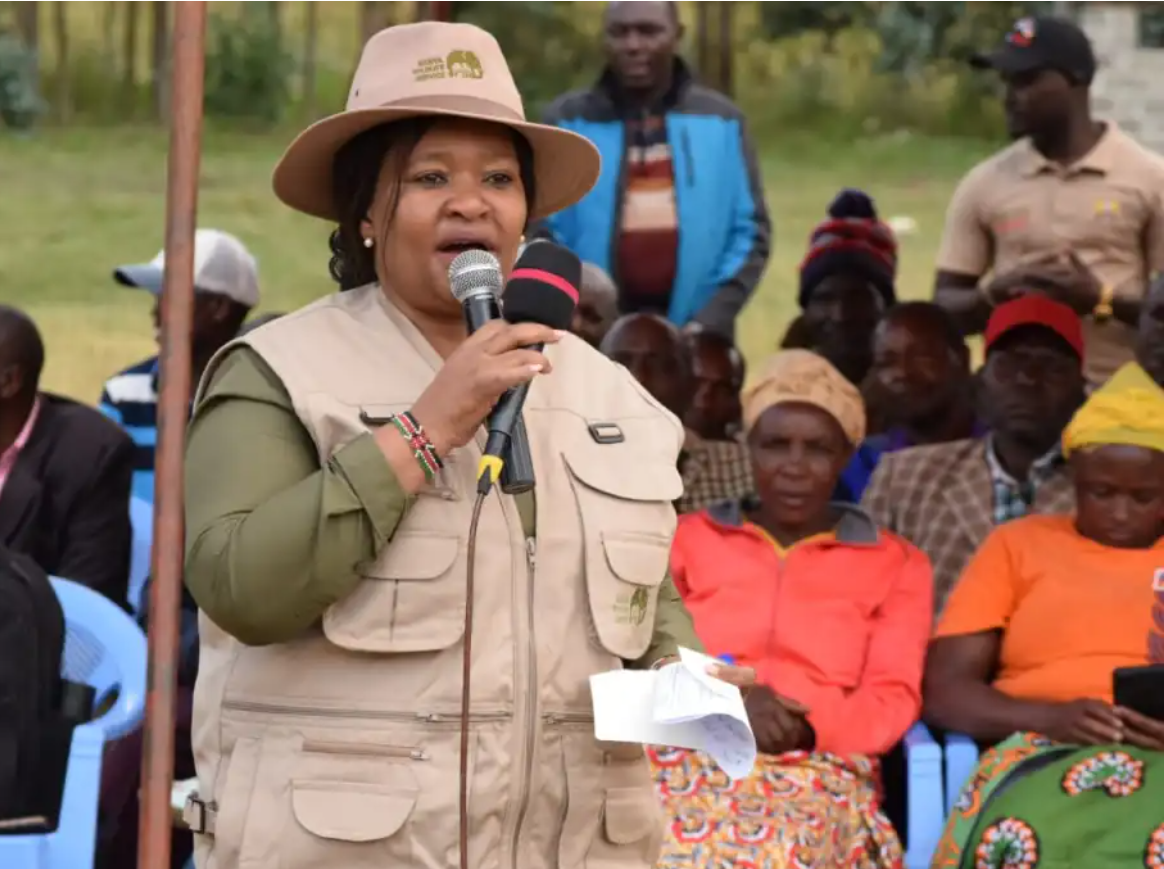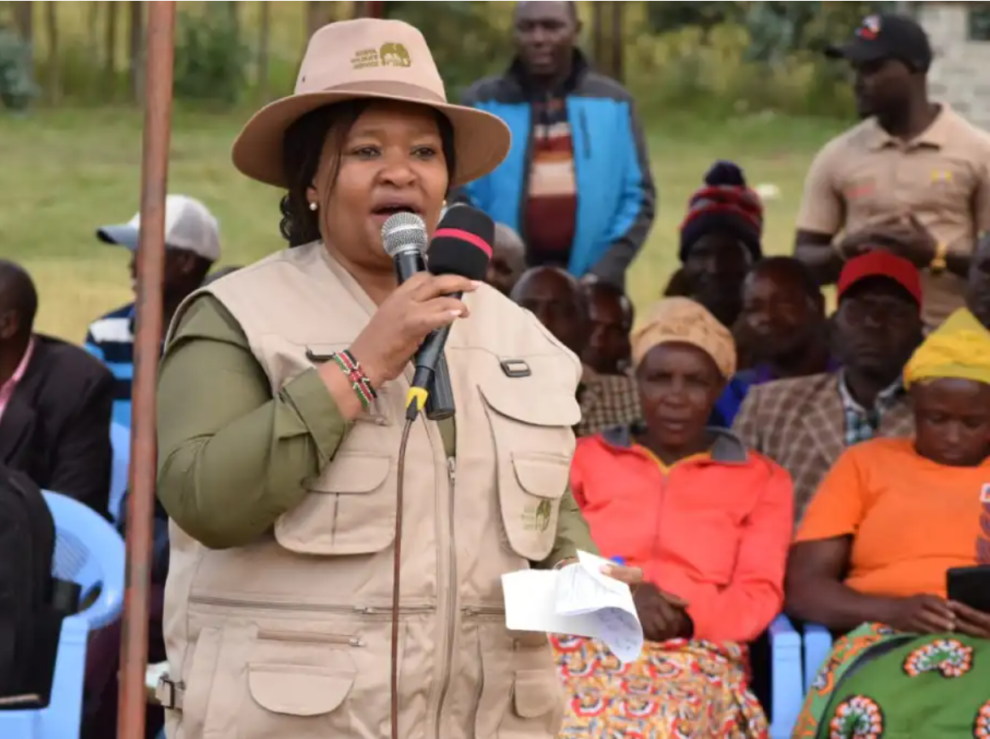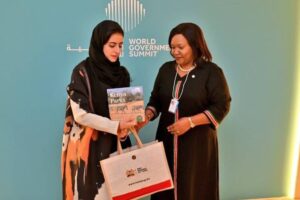The Ministry of Tourism and Wildlife is set to expedite the establishment of the Nyandarua County Wildlife Compensation Committee. Tourism and Wildlife Cabinet Secretary, Rebecca Miano, announced plans to unveil the committee soon, in an effort to address the numerous claims submitted by residents affected by human-wildlife conflicts.

“I will be unveiling the Committee shortly, so it can begin processing the claims for compensation,” said Miano during a tree planting ceremony held on Friday at Iriani Primary School, located by the shores of Lake Olbolosat in Ndaragwa Constituency, Nyandarua County.
The Cabinet Secretary praised the local community for coexisting peacefully with wildlife, particularly the large number of hippos inhabiting Lake Olbolosat.
Her response came after County Commissioner Abdirisack Jaldesa appealed for the formal gazetting of the County Compensation Committee members to accelerate the compensation process for victims of human-wildlife conflicts. Jaldesa, who is expected to serve as the committee’s chairman, emphasized that many residents of Nyandarua County have suffered due to wildlife, highlighting that the area is home to hippos and other animals. He mentioned a recent incident where a buffalo killed a man and noted that hippos have frequently attacked livestock.
During the event, County Executive for Water, Environment, Natural Resources, and Climate Change, Wachira Mugo, urged the government to declare Lake Olbolosat a national reserve. Doing so would grant the county authority over the lake’s conservation and allow funds to be allocated for its development as a tourist attraction.
Mugo explained that, as a wetland, the lake falls under the national government’s jurisdiction, preventing the county from spending public funds on its conservation. He pointed out that such action would conflict with budgetary regulations. However, Mugo noted that Lake Olbolosat was designated a wetland by the National Environment Management Authority (NEMA) in 2018.
He also shared that the Governor has allocated Sh7.5 million from the World Bank for the lake’s conservation. The funds will be used to support conservation efforts led by local self-help groups and the community to reduce hippo attacks, which often occur when the lake dries up, causing the animals to migrate to nearby dams.


















